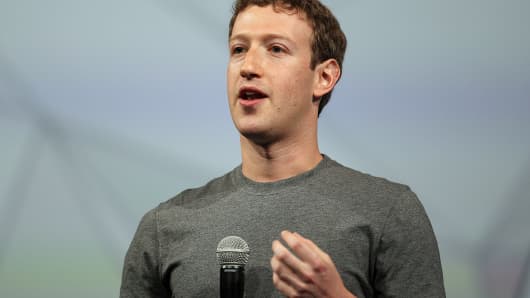He's already learned Mandarin, runs a mile every day and has built his own virtual assistant. Now, for his 2017 new year's resolution, Facebook CEO Mark Zuckerberg has pledged to meet people in every state in the U.S.
While many are speculating that Zuckerberg's goal hints at an increasing commitment to his political aspirations, there's something far bigger at play.
Facebook was included in a broad critique of the role social media played in spreading fake news and harsh commentary during the 2016 U.S. presidential election, leading many pundits to say the country is more polarized because of it.
Following her defeat, Hillary Clinton made a plea for Congress to find a way to crack down on "fake news" which she said is a threat to democracy, and said there is an "epidemic of malicious fake news."
The wider debate raised questions on whether software programs could detect fake news, to the role of perceived bias by mainstream media and to how content is ranked and determined in a Facebook user's news feed.
As Zuckerberg once told his colleagues, "a squirrel dying in your front yard may be more relevant to your interests right now than people dying in Africa."
But are 'people dying in Africa' in fact, more relevant to your interests now?
Perhaps.
Eli Pariser's book, "The Filter Bubble," suggests technology is causing a bubble to form around each of us – reaffirming our existing interests, preventing us from knowing any views that oppose our own, and perhaps worse, stopping us from knowing other views may even exist, which possibly explains why opinion polls and Clinton supporters misread support for Donald Trump.
Zuckerberg seems to acknowledge the divide and his cross-country visits are aimed at getting a ground-level sense of the nation-instead of the posts on Facebook.
"After a tumultuous last year, my hope for this challenge is to get out and talk to more people about how they're living, working and thinking about the future," Zuckerberg said in his Facebook post announcing his annual challenge.
While Facebook collects mountains of data on people's preferences and social networks as the basis for getting advertisers to pay for the access - the Harvard University dropout has said his original vision was to expand people's horizons beyond who they interacted with in their physical life. Now, more than a decade since the company started with colleagues at Harvard, he's committed to broadening his.



